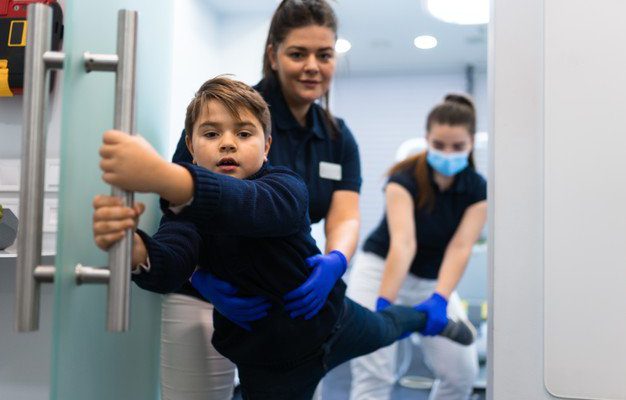A groundbreaking study by the University of Sheffield School of Clinical Dentistry will investigate whether cognitive behavioral therapy (CBT) can help reduce the number of children who are afraid of the dentist.
About one in three children are afraid to go to the dentist, which leads to avoidance of visiting the dentist and, as a result, to poor oral health, increased toothache, dental infections and caries.
Now, a team of dentists and researchers led by the University of Sheffield School of Clinical Dentistry has received a £ 1.6 million grant to research a new CBT-based way to reduce dental anxiety.

The study, which will involve 600 children from 30 dental clinics and clinics across England and Wales, will investigate whether specially designed resources that are child-friendly, parent-friendly and dentist-friendly can provide complete dental treatment in-house instead of to send them to a hospital for specialized services under sedation or general anesthesia.
Principal Investigator Professor Zoe Marshman of the University of Sheffield School of Clinical Dentistry and Emeritus Public Health Consultant in Dental Health at the Sheffield Teachers' Hospital Foundation said:
“Dental anxiety is very common in children and can lead to poor oral health, frequent tooth decay and tooth extraction. Traditionally, dentists refer children to specialized clinics where they are treated under sedation or general anesthesia. This approach does not help them get rid of their fear, and they can continue to avoid the dentist all their lives. Therefore, we are in dire need of an effective way to help children who are overcome by fear when visiting the dentist. ”
Professor Marshman and his team will explore a new CBT-based approach that involves dentists, children and parents working together using specially designed resources to understand what the child is afraid of. These resources will provide complete information and choice about the procedure, offer distraction activities for children, and ease the conversation with the dentist.
There is strong evidence to support the use of CBT, talking therapy, for other forms of anxiety and mental disorders, but there is currently very little research on CBT conducted specifically by dentists rather than psychologists for children with dental anxiety.
Self-help CBT resources have been designed for children ages 9-16 and aim to offer strategies to reduce anxiety, stimulate thought, and support better communication with young patients.
“If our research finds that CBT resources are effective, then children can be helped directly in dental clinics, without the need to travel to hospitals for dental treatment,” said Professor Marshman.
The study is scheduled to begin in September 2021.
Dental professionals or practices interested in taking part can contact z.marshman@sheffield.ac.uk for more information.




















Comments